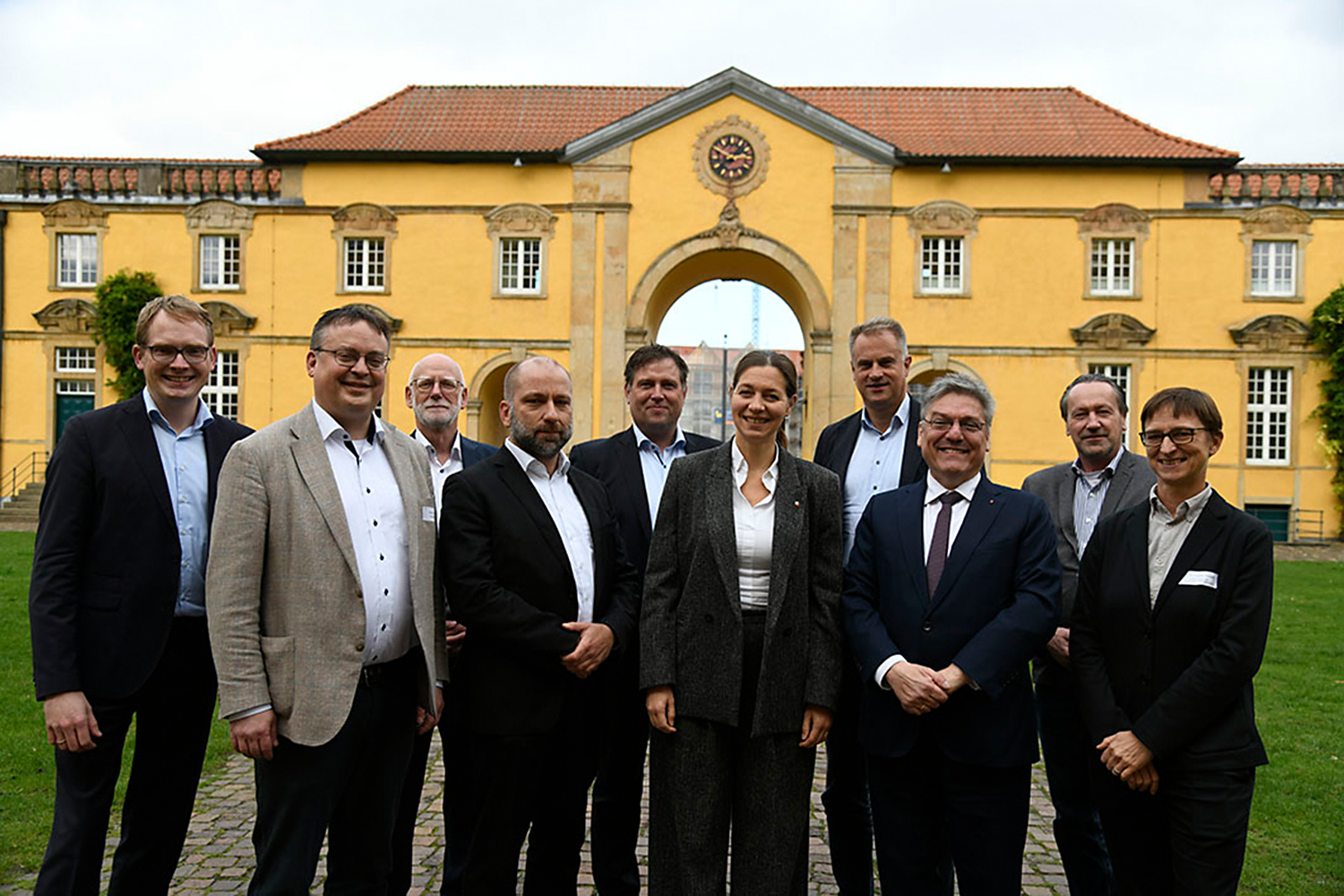Using artificial intelligence to shape the agriculture of the future Launch of the AI Real-World Laboratory for Agriculture: €18.9 million for research into agricultural technology
Press release from the University of Osnabrück
Can artificial intelligence make agriculture more productive, sustainable and possibly even more cost-effective in the future? How can a resilient economy in the fields of agriculture, nutrition and bioeconomy be promoted more strongly? These questions are being addressed by the AI Real-World Laboratory for Agriculture (RLA), in which Technische Universität Braunschweig is also involved.

Those involved in the AI Real-World Laboratory for Agriculture at the opening ceremony. Photo: Uwe Lewandowski
The Volkswagen Foundation is providing €18.9 million in project funding for the RLA as part of the zukunft.niedersachsen (future.lower saxony) initiative through the Ministry of Science and Culture. Led by the University of Osnabrück, the five-year project involves the German Research Centre for Artificial Intelligence, Osnabrück University of Applied Sciences, Agrotech Valley Forum e.V., Technische Universität Braunschweig, the Johann Heinrich von Thünen Institute, the Leibniz Institute for Agricultural Engineering and Bioeconomy e.V. and the Netzwerk Ackerbau Niedersachsen e.V. are also participating in the project.
“We are setting new standards with the new AI Real-World Laboratory for Agriculture,” said Prof. Dr. Susanne Menzel-Riedl, President of the University of Osnabrück, at the kick-off event in the Osnabrück Castle. “After all, agriculture faces a future full of challenges. I am not just talking about the highly problematic effects of man-made climate change. This is exacerbated by steadily rising production costs and an alarming shortage of skilled workers. There are tasks to be tackled that require different perspectives. And this is precisely why all the scientists involved in the project contribute such diverse expertise that one can truly speak of interdisciplinarity in action.”
Prof. Dr Joachim Schachtner, State Secretary for Science and Culture in Lower Saxony, added: “The AI Real-World Laboratory for Agriculture and the two joint projects are conducting research that is extremely important for Lower Saxony as the number one agricultural state. We hope to gain insights into how the transformation to a sustainable agricultural and food system can be achieved.”
Next year, an agricultural research farm for testing and validation – the FieldLab Agrar – is to be established and brought to life in the Osnabrück region. “As a first step, we want to test semi-automated technology as a focus of our work, while also keeping an eye on the economic components,” explains Prof. Dr. Tim Römer from the Institute of Mathematics at the University of Osnabrück. Agricultural equipment is expensive – instead of purchasing a new tractor outright, the possibility of retrofitting existing technology should therefore be explored.
The fact that the scientifically supported use of AI is also finding practical application in agriculture is particularly important to the researchers: “We want to engage in dialogue with companies and vocational schools, and we can also very well imagine demonstrating the application of the latest technologies to vocational and technical school teachers,” says Römer. The AI Real-World Laboratory for Agriculture is intended to be a platform that closely links science, practice and education.
Until then, office space and storage facilities will first be created and more staff recruited, with the recruitment process being interdisciplinary – in addition to computer scientists and mathematicians, people from agricultural science or business studies courses as well as technicians are also being sought. Lawyers also play a very important role in the RLA, as the further development of the legal framework for the use of AI and robotics in agriculture is one of the core objectives of the research project.
